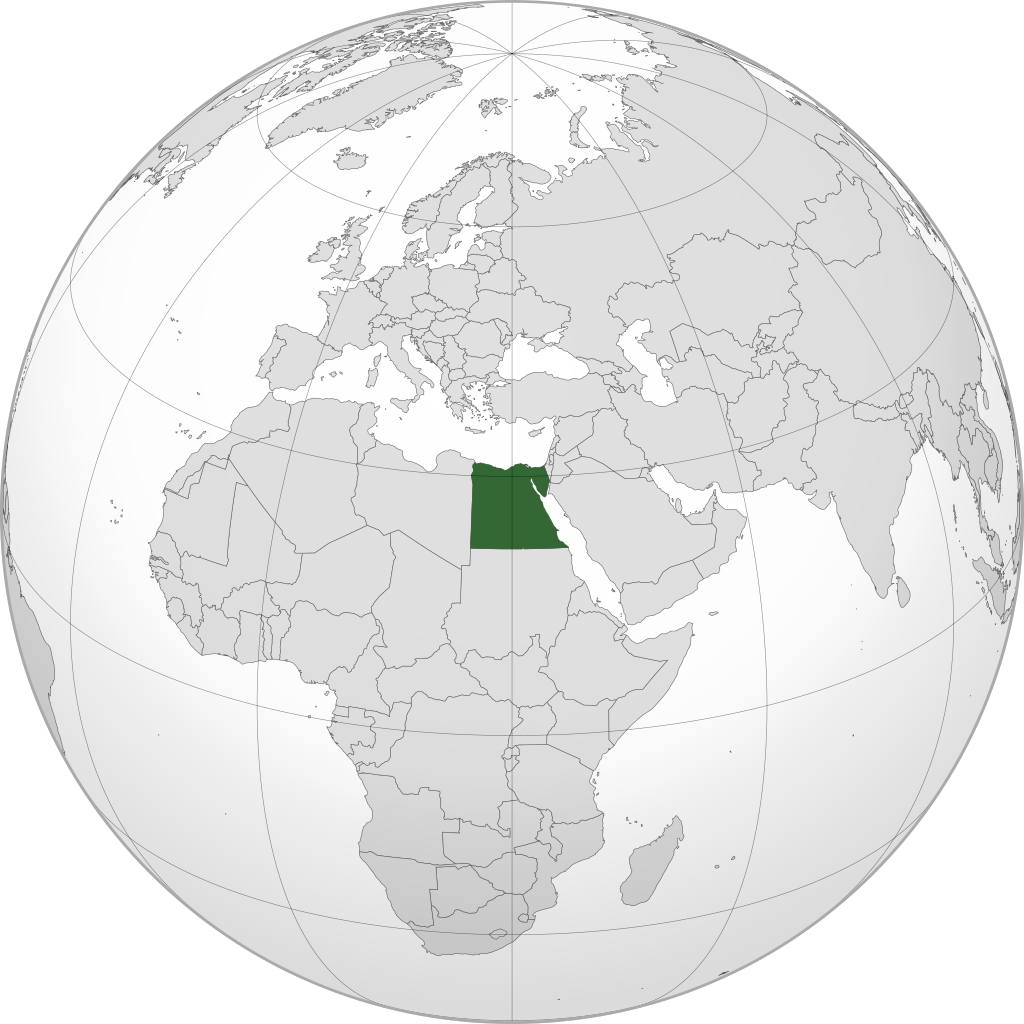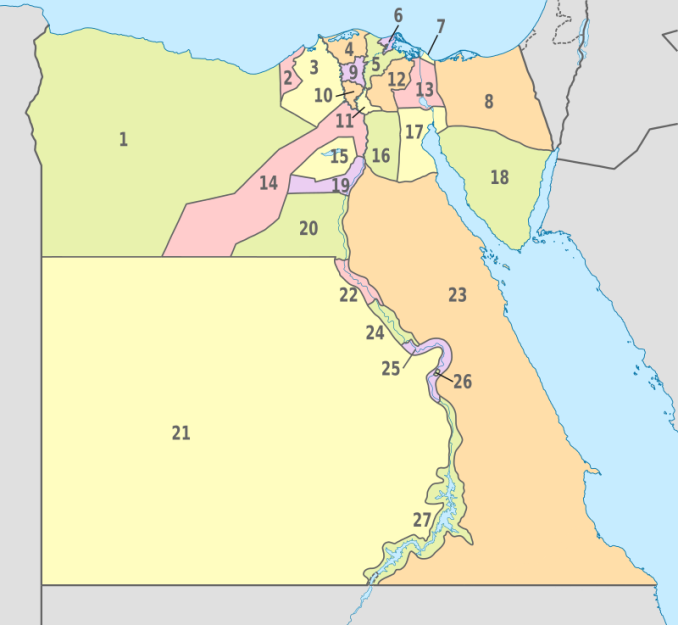More languages
More actions
(Remade the first section) Tag: Visual edit |
RedCustodian (talk | contribs) No edit summary Tag: Visual edit |
||
| Line 24: | Line 24: | ||
===1952 revolution and republic === | ===1952 revolution and republic === | ||
=== United Arab Republic (UAR) === | === United Arab Republic (UAR) === | ||
| Line 53: | Line 42: | ||
In 2013, with US and UK support,<ref>{{Web citation|author=[[Kit Klarenberg]]|newspaper=[[The Grayzone]]|title=Leaked documents reveal Reuters helped overthrow Egyptian democracy|date=2023-07-05|url=https://thegrayzone.com/2023/07/05/reuters-overthrow-egyptian-democracy/|archive-url=https://web.archive.org/web/20230708210001/https://thegrayzone.com/2023/07/05/reuters-overthrow-egyptian-democracy/|archive-date=2023-07-08}}</ref> General [[Abdel Fattah al-Sisi|Abdul Fatah Saeed el-Sisi]] removed Morsi from power and appointed [[Hazem El Beblawi|Hazem Al Beblawi]] as prime minister. The military has killed almost 100 supporters of the Muslim Brotherhood.<ref name=":0" /> In 2022, el-Sisi told poor people to "eat leaves" to survive due to food shortages.<ref name=":1">{{News citation|author=Dejan Kukic|newspaper=[[In Defence of Marxism]]|title=Sisi says “let them eat leaves” as food crisis sharpens class lines in Egypt|date=2022-07-08|url=https://www.marxist.com/sisi-says-let-them-eat-leaves-as-food-crisis-fuels-sharpens-class-lines-in-egypt.htm|archive-url=https://web.archive.org/web/20220709165928/https://www.marxist.com/sisi-says-let-them-eat-leaves-as-food-crisis-fuels-sharpens-class-lines-in-egypt.htm|archive-date=2022-07-09|retrieved=2022-07-16}}</ref> | In 2013, with US and UK support,<ref>{{Web citation|author=[[Kit Klarenberg]]|newspaper=[[The Grayzone]]|title=Leaked documents reveal Reuters helped overthrow Egyptian democracy|date=2023-07-05|url=https://thegrayzone.com/2023/07/05/reuters-overthrow-egyptian-democracy/|archive-url=https://web.archive.org/web/20230708210001/https://thegrayzone.com/2023/07/05/reuters-overthrow-egyptian-democracy/|archive-date=2023-07-08}}</ref> General [[Abdel Fattah al-Sisi|Abdul Fatah Saeed el-Sisi]] removed Morsi from power and appointed [[Hazem El Beblawi|Hazem Al Beblawi]] as prime minister. The military has killed almost 100 supporters of the Muslim Brotherhood.<ref name=":0" /> In 2022, el-Sisi told poor people to "eat leaves" to survive due to food shortages.<ref name=":1">{{News citation|author=Dejan Kukic|newspaper=[[In Defence of Marxism]]|title=Sisi says “let them eat leaves” as food crisis sharpens class lines in Egypt|date=2022-07-08|url=https://www.marxist.com/sisi-says-let-them-eat-leaves-as-food-crisis-fuels-sharpens-class-lines-in-egypt.htm|archive-url=https://web.archive.org/web/20220709165928/https://www.marxist.com/sisi-says-let-them-eat-leaves-as-food-crisis-fuels-sharpens-class-lines-in-egypt.htm|archive-date=2022-07-09|retrieved=2022-07-16}}</ref> | ||
== Geography == | == Geography == | ||
[[File:Egypt administrative regions.png|thumb]] | [[File:Egypt administrative regions.png|thumb]] | ||
== References == | == References == | ||
[[Category:African countries]] | [[Category:African countries]] | ||
Revision as of 16:40, 4 March 2024
| Arab Republic of Egypt جمهورية مصر العربية | |
|---|---|
Anthem: "بلادي، بلادي، بلادي" | |
 | |
| Capital and largest city | Cairo |
| Official languages | Arabic |
| Recognised national languages | Egyptian Arabic |
| Religion | Islam |
| Dominant mode of production | Capitalism |
| Government | Unitary semi-presidential republic |
• President | Abdel Fattah el-Sisi |
• Prime Minister | Moustafa Madbouly |
| Area | |
• Total | 1,010,408 km² |
| Population | |
• 2023 estimate | 110,000,000 |
| Currency | Egyptian pound |
Egypt (مصر Miṣr or Maṣr), officially known and recognized as the Arab Republic of Egypt (جمهورية مِصر العربية), is a transcontinental nation in North Africa and the Sinai Peninsula and West Asia. It is bordered by the Mediterranean Sea to the north, Palestine to the northeast, the Red Sea to the east, Sudan to the south, and Libya to the west. Egypt consists of 27 governorates (subdivisions) with Cairo as the capital and largest city of Egypt, while Alexandria, the second-largest city, is an important industrial and tourist hub at the Mediterranean coast. At approximately 100 million inhabitants, Egypt is the 14th-most populated country in the world, and the third-most populated in Africa, behind Nigeria and Ethiopia. Islam is the official religion with a sizeable Coptic christian minority and Arabic is the official language.[1][2]
The majority of its population live near the banks of the Nile River, an area of about 40,000 square kilometres, where the only arable land is found. The large regions of the Sahara desert, which constitute most of Egypt's territory, are sparsely inhabited and mostly by Bedouins, and the south (also called upper Egypt) has a sizeable amount of Nubians. About 43% of Egypt's residents live across the country's urban areas,[3] with most spread across the densely populated centers of greater Cairo, Alexandria and other major cities in the Nile Delta.
Egypt has one of the longest histories of any country, tracing its heritage along the Nile Delta back to the 6th–4th millennia BCE. It is considered a cradle of civilization.
Egypt's long and rich cultural heritage is an integral part of its national identity, which reflects its unique transcontinental location being simultaneously Mediterranean, West Asian and African.
Egypt is a founding member of the United Nations, the anti-imperialist Non-Aligned Movement, the Arab League, the African Union, Organization of Islamic Cooperation and the World Youth Forum.
History
Ancient history
Menes united Upper and Lower Egypt by military conquest and proclaimed himself pharaoh. He created a centralized state with a ruling class of priests and officials below himself. During the Old Kingdom, Egypt conquered the Sinai Peninsula and used its copper to make tools. The pharaohs were overthrown around 2250 BCE following a period of famine and foreign invasion.
Around 1600 BCE, the New Kingdom took power in Egypt before collapsing again to invaders in the 12th century BCE. Stonemasons and carpenters organized first recorded strike in history in 1170 BCE.[4]
1919 revolution
The Egyptian Communist Party supported the Wafd Party's 1919 uprising against the British.[5] Women of all classes protested against the British and cut telephone lines, leading the British to kill many of them. Egypt gave women the right to vote in 1923 but reversed it soon after.[6]
In 1924, when Saad Zaghloul of the Wafd Party became prime minister, he arrested the entire central committee of the ECP.[5]
1952 revolution and republic
United Arab Republic (UAR)
United Arab States (UAS)
Federation of Arab Republics
Arab Republic of Egypt
Arab Spring
2011 revolution
In 2011, millions of people in Egypt rose up to overthrow the U.S.-backed police state led by Hosni Mubarak.[7] Due to the lack of a revolutionary socialist party, the capitalist Muslim Brotherhood party took power under Mohamed Morsi.[8]
Morsi supported U.S. efforts to overthrow Bashar al-Assad in Syria and passed a new constitution limiting the rights of women and religious minorities.[7]
2013 Egyptian coup d'état
In 2013, with US and UK support,[9] General Abdul Fatah Saeed el-Sisi removed Morsi from power and appointed Hazem Al Beblawi as prime minister. The military has killed almost 100 supporters of the Muslim Brotherhood.[7] In 2022, el-Sisi told poor people to "eat leaves" to survive due to food shortages.[10]
Geography

References
- ↑ Constitution of The Arab Republic of Egypt 2014 (2014). [PDF]
- ↑ "Religion Indexes (Egypt)". The Association of Religion Data Archives. Retrieved 2023-11-5.
- ↑ "Urban population (% of total population) - Egypt, Arab Rep.". The World Bank.
- ↑ Neil Faulkner (2013). A Marxist History of the World: From Neanderthals to Neoliberals: 'The First Class Societies' (pp. 18–24). [PDF] Pluto Press. ISBN 9781849648639 [LG]
- ↑ 5.0 5.1 Vijay Prashad (2017). Red Star over the Third World: 'Enemy of Imperialism' (p. 78). [PDF] New Delhi: LeftWord Books.
- ↑ Vijay Prashad (2008). The Darker Nations: A People's History of the Third World: 'Cairo' (pp. 51–60). [PDF] The New Press. ISBN 9781595583420 [LG]
- ↑ 7.0 7.1 7.2 Mazda Majidi (2013-07-20). "U.S. imperialism and the coup in Egypt" Liberation News. Archived from the original on 2019-07-14. Retrieved 2022-07-13.
- ↑ "How can we make a revolution? Lessons of Egypt and Occupy" (2014-07-06). Liberation School. Archived from the original on 2021-05-05. Retrieved 2022-07-13.
- ↑ Kit Klarenberg (2023-07-05). "Leaked documents reveal Reuters helped overthrow Egyptian democracy" The Grayzone. Archived from the original on 2023-07-08.
- ↑ Dejan Kukic (2022-07-08). "Sisi says “let them eat leaves” as food crisis sharpens class lines in Egypt" In Defence of Marxism. Archived from the original on 2022-07-09. Retrieved 2022-07-16.


